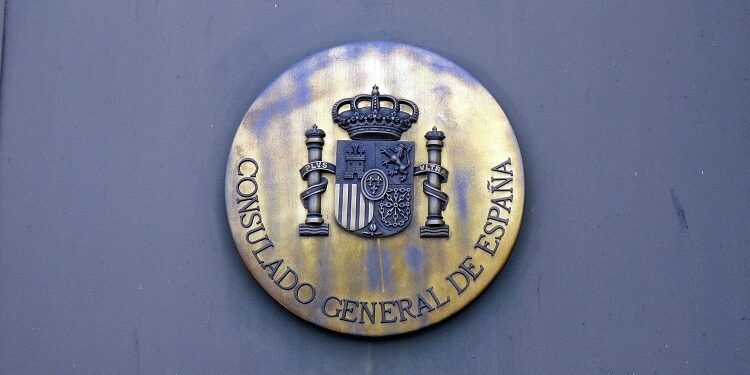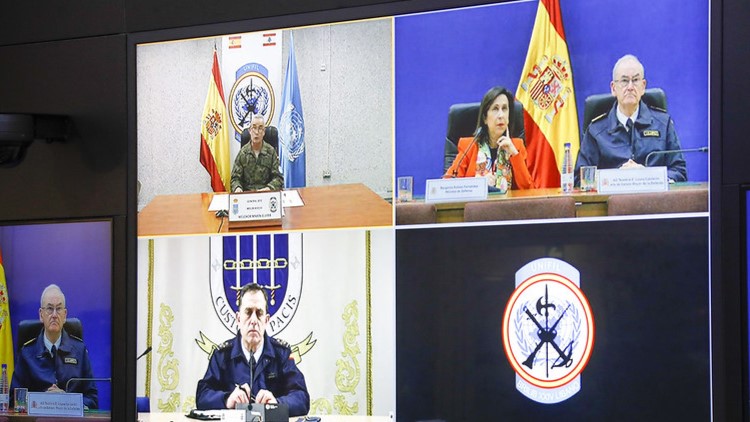The Diplomat
Spanish consulates abroad attended 7,200 cases of collective and individual emergencies throughout 2022, practically twice as many as the previous year (98.5% more), due to, among other factors, the war in Ukraine and the evacuation of Afghanistan, according to the Balance of Consular Activity 2022 presented yesterday by the Minister of Foreign Affairs, José Manuel Albares, during the meeting of the Council of Ministers.
Emergency assistance represents the first consular response to a situation of unprotectedness abroad, including support to family members and relatives of affected Spaniards. In addition to face-to-face attention at consulates, 135,899 emergency calls were received on the lines set up for this purpose, 46% more than in 2021.
According to the report, 142 Spaniards were evacuated in two convoys during the first days of the war in Ukraine. Since then, the situation of those who preferred to stay and of the reporters who went to the country to report on the conflict is being monitored. In the case of Afghanistan, in addition to the evacuation of around 2,300 people, including Embassy staff and collaborators, in the summer of 2021, the Government organized two operations in 2022 that allowed the transfer to Spain of 357 Afghans. The Spanish Embassies in Pakistan and other nearby countries continue to work to ensure that none of the collaborators whose lives and those of their families are threatened are left behind.
Beyond emergency situations, the 179 Consular Offices attend daily to nearly three million Spanish citizens registered as residents abroad, “a group that would constitute the third province of Spain in terms of population and that has practically doubled since 2009,” according to the Foreign Ministry. These Consular Offices also assist the millions of Spaniards who travel to other countries every year for tourism, business or other reasons. Argentina, France, the United States and Germany are the countries with the largest number of Spaniards.
The issuance of passports, laissez-passers or visas is among the regular services offered by these offices. In 2022, 365,558 passports were issued throughout the consular network and 1.3 million visas were processed, 113.7% more than in 2021. According to the Ministry, these figures reflect the progressive recovery of travel following the mobility restrictions imposed by the COVID-19 pandemic.
Violence against women and detainees
On the other hand, the Consular Offices dealt with 251 new cases of violence against women last year and processed 14 repatriation files that allowed 20 people to return to Spain. “These are cases of special vulnerability, as the persons are without their own family social network, have difficulties with the language and are often unfamiliar with the reality of the country,” said the Foreign Ministry.
Likewise, as of December 31, 2022, there were 894 people of Spanish nationality detained in other countries, 13% more than in 2021. They are 788 men and 106 women, most of them in prisons in France, Germany and Morocco. Consular assistance to these persons includes making representations to the country’s police and prison authorities, ensuring acceptable conditions for their state of health, intermediating with family members so that they can keep in contact and making regular consular visits.
The Consular Offices granted financial aid to detainees amounting to 184,000 euros to alleviate their situation in places where prison conditions are not comparable to those in Spain. During 2022, in addition, 36 files were processed for the transfer to Spain of persons serving sentences in South America and North Africa, in compliance with the treaties signed with 38 countries.
Electoral Processes and Democratic Memory
One of the main tasks of the consulates is to manage the electoral processes held abroad in Spain. The suppression of the “requested vote”, by means of the reform of the vote abroad approved by the Government last year, facilitates and simplifies the exercise of this right. Spaniards registered in the Electoral Census of Absent Residents (CERA) will now receive the documentation without the need to request it previously, they will be able to print the ballots at home and will have more days and places to cast their vote in the ballot box or send it by mail.
On the other hand, the new Law of Democratic Memory allows, since October last year, access to Spanish nationality to people who could not opt for it between 2008 and 2011 under the Law of Historical Memory. The new law also includes other cases of option, such as the sons and daughters born abroad of Spanish women who lost their nationality because they married foreigners before the entry into force of the 1978 Constitution; or the adult sons and daughters of those Spaniards who have had their nationality recognized through the Law of Historical Memory and the Law of Democratic Memory. All of them have two years to do so.
Up to January 31, 24,729 applications for the option of Spanish nationality were presented in the consular network as a whole. Half of them, 12,862, were approved. Likewise, 6,653 registrations have been made. The consular offices are being reinforced to attend to the demands of the people interested in carrying out this procedure.







